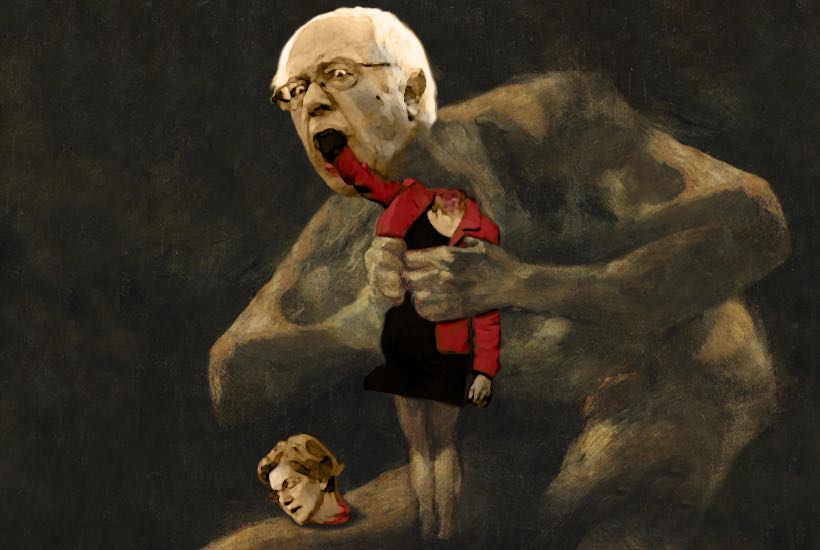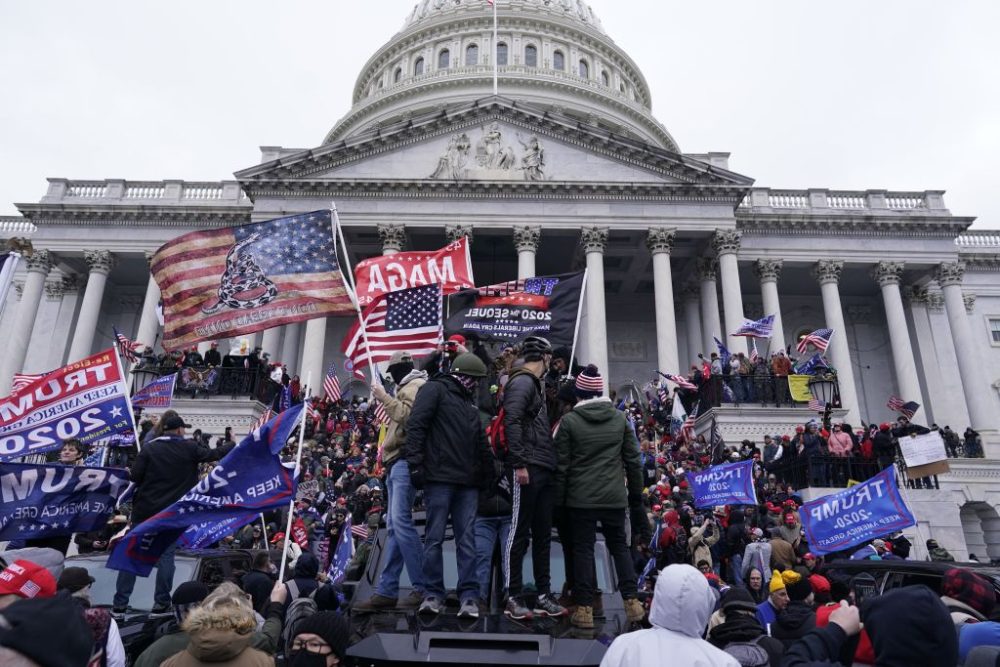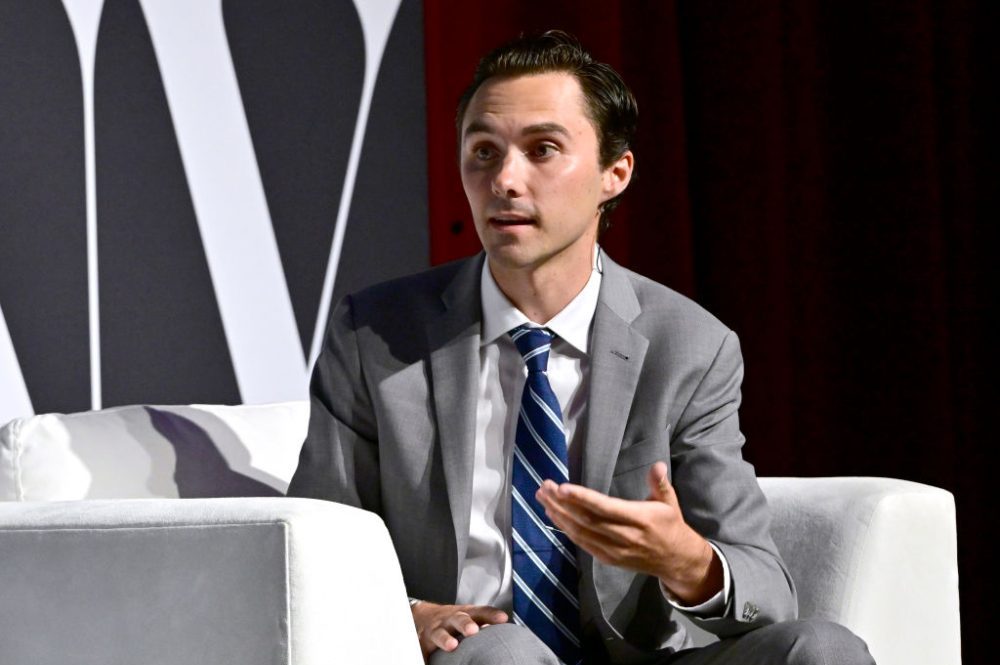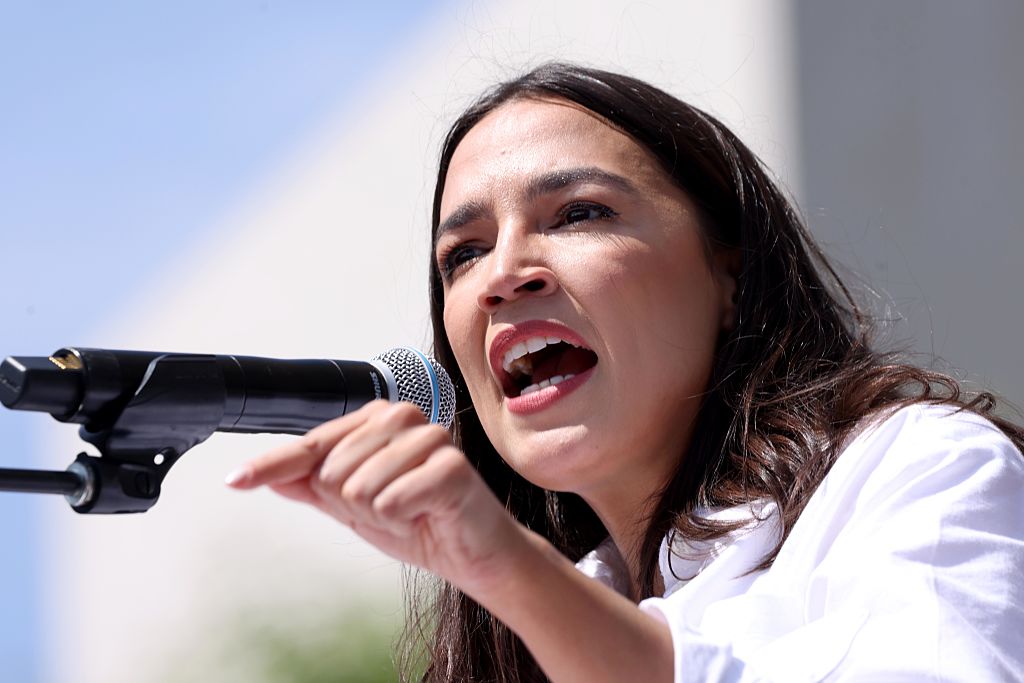Just four months ago, Elizabeth Warren seemed poised to storm the Democratic nomination. In the first days of October, she briefly eclipsed Joe Biden atop the polls. Her supposed rival on the left, Bernie Sanders, had just suffered a heart attack. His candidacy appeared to be fading. Suddenly, Warren was all the rage: she was a woman, which matters a lot to the Democratic media. She talked like a radical leftie, but she didn’t frighten the establishment horses in the way Bernie did.
The bookmakers made her strong favorite to win: everybody assumed Warren would hoover up Sanders’s votes as his presidential aspirations vanished once again.
Well, the opposite has happened. Bernie Sanders’s campaign has ended up devouring Warren’s. After she announced her Medicare-for-All plan, which left most sane observers scratching their heads, Warren began to wobble, and she has never quite recovered. The matronly voice who claimed to have ‘a plan’ for everything somehow lost the plot.
Her team cynically tried to smear Sanders as a sexist this month, based on a conversation the two politicians had in December. That hasn’t done her any favors. If anything, polls suggest, following this ugly she-said-he-said episode, that Democratic voters like Sanders more and Warren less. What a wicked web we weave…
Identity politics pyrotechnics cannot disguise the fact that, while the New York Times and other elite media outlets support Warren, she has difficulty winning over lower-middle-class voters. Her trouble is, she sounds phony — and not just because she claims to be Native American and like beer. She can sound hectoring, too, which her defenders will say is a sexist point — but then that is because they also like hectoring people. At that now-notorious CNN LGBTQ Equality Town Hall in Los Angeles, Warren gave a snarky answer to a question about what she would say to an old-fashioned voter who thought marriage was between one man and one woman. ‘I’m cool with that,’ she said. ‘Just marry one woman.’ The CNN crowd lapped that up, so did much of social media, but it’s perhaps no coincidence that Warren‘s dip in the polls accelerated around that time.
Sanders, by contrast, refuses to get too bound up in identity politics and settling scores. He strikes voters as authentic — and he has always stood by his principles, unlike Warren whose own ideological history is potted, to put it mildly. She has a public personality problem; he doesn’t: one New Hampshire poll found that 4 percent of voters found her likable, whereas some 20 percent liked Sanders.
In mid-November, Sanders’s national polling caught up with Warren. As my colleague Matt McDonald pointed out on my podcast at that time, Sanders had always maintained a solid showing in polls, rarely dipping below double digits — but he never received the same level of media fawning as Warren did. Now he is over seven points ahead of her nationally, according to RealClearPolitics.
Warren may be gathering steam in Iowa, just in time for the caucuses on February 3. But she needs to recover much faster and more broadly if she is ever to win. Surveys suggest she really struggles with that notoriously vital ‘Obama-Trump’ voter group — that is, people who backed both the 44th and 45th presidents. These are exactly the people the Democrats need to defeat Trump in November, the people with whom Bernie scores very well indeed. What is it, one wonders, about the schoolmarmish Harvard academic that independent-minded, blue-collar voters don’t like?
‘Look at the men on the stage,’ said Warren at the last Democratic debate. ‘Collectively, they have lost 10 elections.’ Clap clap clap. That line won’t sound so clever if, as seems likely, Warren’s presidential run falls flat on its face. In 2016, by hook and by crook, the Democratic machine resisted Sanders in order to elevate a woman. That doesn’t look possible this time.
https://audioboom.com/posts/7438126-could-bernie-still-win-the-democratic-nomination


























